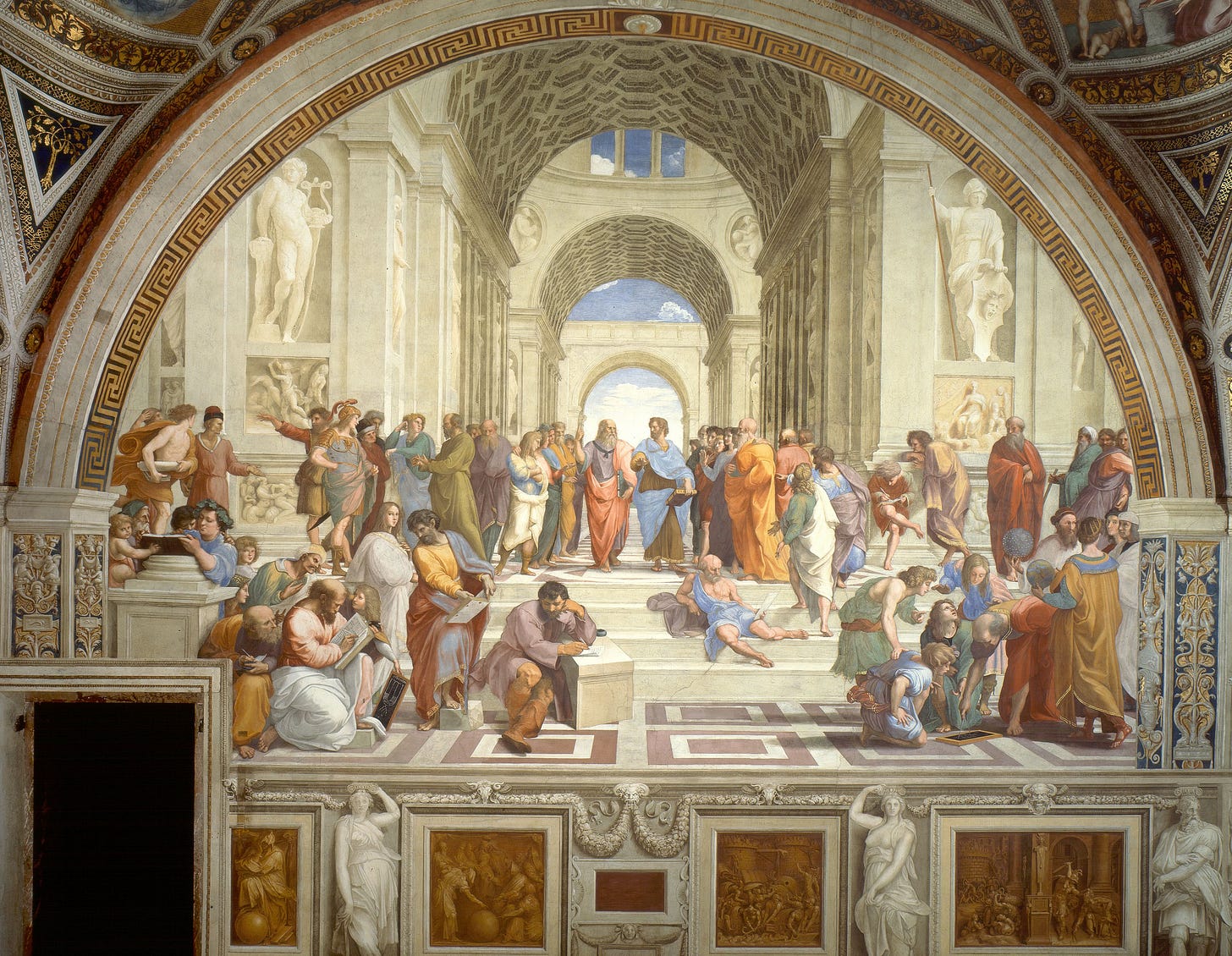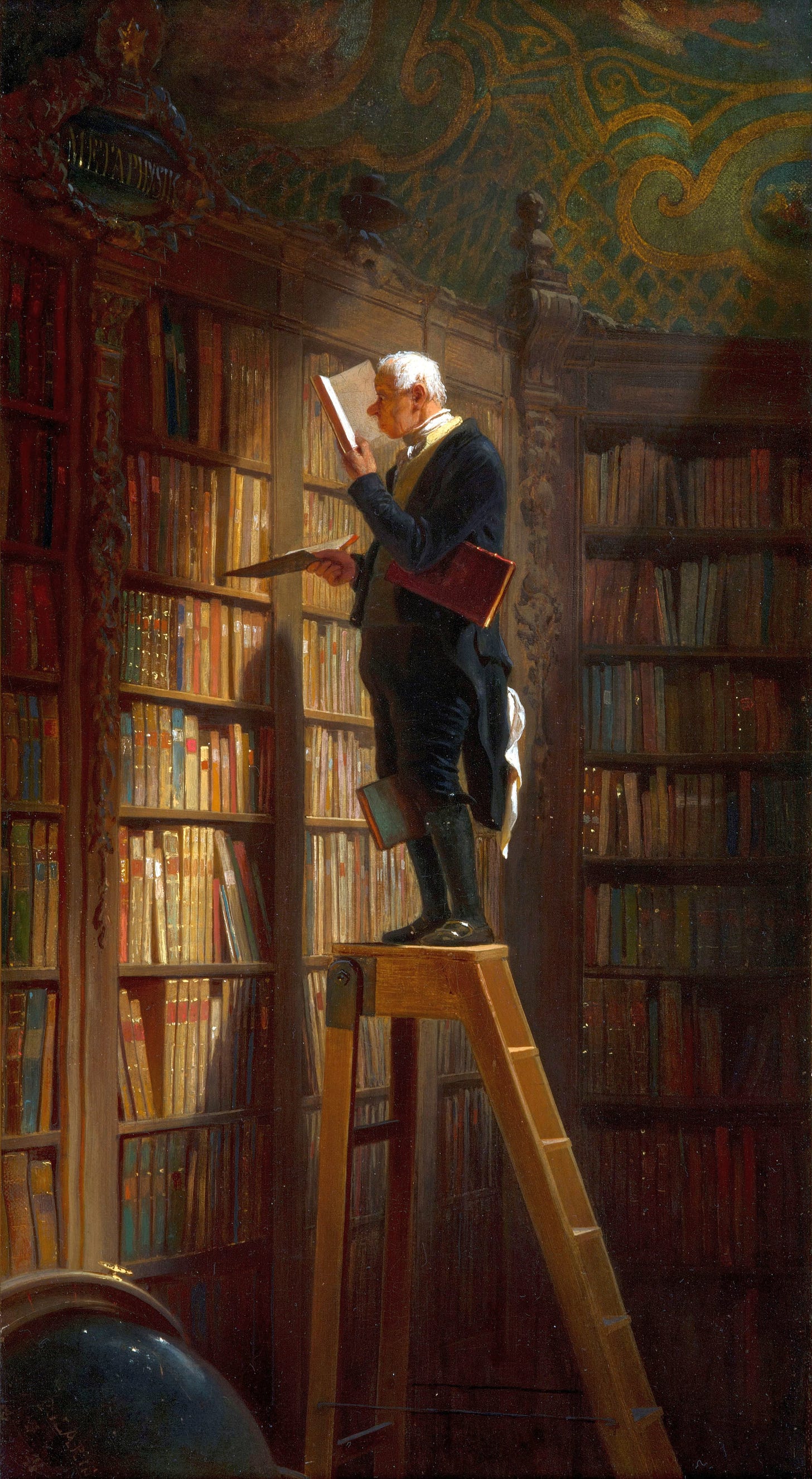This is another informal reflection on my recent reading through Antonin Sertillanges' The Intellectual Life. I recommend that you read the first one, although it is not necessary to understand this post. More than that, I recommend you go buy this book yourself and read along with me. I find it valuable enough to re-read it every year.
I've always been a nerd. My interests have always been bedfellows with "intellectuals", whatever that means. At age 12 (or perhaps 14), I remember being in the car with a friend of mine and being confused about why he did not find the Taniyama-Shimura conjecture as enthralling as I did. I of course had real idea of what it was, but I knew it was interesting!1
I grew up homeschooled, insofar as my schooling was not done through a public or a private school, but really I was community-schooled. My mom, a former high school math teacher, was my primary teacher. However, a whole host of other teachers and parents from our community were involved in my education. In middle and high school, my math team's teacher was a philosophy professor at a local, reasonably prestigious university; my physics and chemistry teacher, a MIT physics graduate stay-at-home dad. My physics classes were usually 5-10 people, and during covid he taught a special relativity course over the summer, just for fun.
I was surrounded from day one by adults and peers who were invested in their educations. Few of us may have phrased it so at the time, but we all cared about the things we were learning. Most of us invested in our classes because we found it interesting and stimulating. It seemed strange to me then, as it does now, that there exist people who don't find some particular hobby or field of study worthy in itself.
An illusion I quickly dispensed with once reaching college is that most students truly care about their education. They don't.2
It is of the utmost importance, then, to surround oneself with people who run against this cultural grain, who are independent foragers for knowledge. This requires effort. Sertillanges writes:
The first association of the intellectual, that which will show him for what he is—apart of course from his needs and his human duties—is association with his fellows. I use the word association, I should prefer to say cooperation, for to associate without cooperating is not doing intellectual work.3
He goes on:
The time would be opportune to conceive and to found the intellectual workshop or consortium, an association of workers all equally enthusiastic and diligent, banded together freely, living in simplicity, in equality, no one aiming at domination, even though someone might have a recognized superiority which would be of advantage to the group. Without pride or the spirit of rivalry, seeking only truth, the friends thus gathered together would, so to say, multiply one another, and their common soul would reveal a wealth of which no sufficient explanation would appear to be discoverable in any single part.4
Sertillanges believes that this communion of persons, this friendship of minds is necessary because intellectual work is hard. Contending with old ideas, creating new ideas, crafting a vision for a better world is rewarding, but comes with the possibility of deep darkness. This work is arduous—even with fellow bondservants of the truth. It becomes all the harder when we have no one to encourage us when our vision grows dim, when the demon of laziness whispers "what is the point?" In this situation, the constancy of others, the exchange of ideas, the idle-yet-productive talk deep into the night would be "admirably efficacious against this gloomy mood."5
I highlight the word friends in the above quote because I think friendship is integral to unity of purpose. Intellectual work done rightly requires full devotion to the Socratic maxim "Know thyself". It is very difficult to form a proper understanding of ourselves without friends. Friendship is a mirror for the soul. It provides a necessary outside perspective of ourselves. When one of the fellows is lacking some virtue or other, some necessary element of intellectual study, his friends will rally around him and supply him from their own stores. The whole becomes greater than the parts.
Friendship of course does more than just build virtue:
Friendship is an obstetric art; it draws out our richest and deepest resources; it unfolds the wings of our dreams and hidden indeterminate thoughts; it serves as a check on our judgments, tries out our new ideas, keeps up our ardor, and inflames our enthusiasm.6
Several times in my own intellectual life, I have reached a narrow, dark valley. It is precisely in those moments when encouragement from friends sustains me; it keeps me from giving up on the whole accursed project, pushing me one small step forward. My roommates, though they are not often studying the same subject matter as I, have sustained my soul when it thirsts. Many a late-night conversation has drawn me to water when I could find none on my own. My roommates are intellectuals in their own ways—and in those ways, they build up my own intellectual life. Other friends, whether through organizations at my university or online groups, encourage me, stimulate my ideas, and sharpen my understanding of my own positions. As Sertillanges says, friendship is an obstetric art—if it births nothing else, friendship has birthed the man that I am today.
Common lodging may be the ideal scenario, but it is by no means necessary:
In these groups the workers do not always live together, but they work with the same spirit; they concert their efforts, they criticize one another, they are both protected and stimulated by a setting to which an initiating idea or a great tradition gives the essential character.
Try, if you can, to join some such group, try if need be to establish one.7
To reel back the pessimism of what I discovered upon arriving at college, I will say that I have found groups at my university for any (sufficiently broad) intellectual interest I desire to engage in with others. My classmates in my math classes are all engaged in math for mathematics' sake; my apologetics organization regularly spends hours after our meetings talking philosophy; there's a group of regulars who play at the pianos around campus. Intellectual community can be found here, one must only look for it.
I do worry that once I cease to be a student, finding such non-online community will be much more difficult. If you have any experience with building intellectual community in your own life, please drop a comment down below! I would love to hear about your experiences and any other thoughts you have on these musings. And, if you’re enjoying this mini-series, I suggest you check out
. He recently secured a book deal about this very same topic. Jared is also who originally recommend The Intellectual Life to me—a recommendation that has proven formative.I learned about this from Simon Singh’s book on Fermat’s Last Theorem, released in the US as Fermat’s Enigma. Highly recommend if you want to get a basic grasp on the sorts of things mathematicians get really excited about.
This article isn’t meant to be an assessment on the state of the university education in America. Others have done that better than I can, several of them are on this platform.
Antonin G. Sertillanges, The Intellectual Life, p. 54.
Ibid., p. 54-55, emphasis mine.
Ibid., p. 55.
Ibid., p. 56.
Ibid., p. 56-57.




Ain’t no way we’re giving Socrates credit for “Know Thyself” now 💀